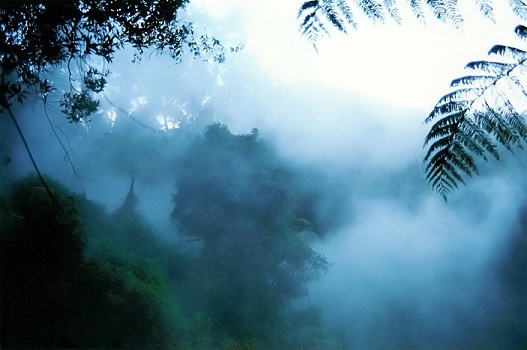-
About
- Our Work
- Get Involved
- Stay Updated
Agroforestry, key to increase agriculture in Indonesia
 Do you know what CSA is? CSA or Climate Smart Agriculture is an agricultural system which focuses on increasing sustainable agriculture productivity to enhance achievement of national food security and development goals by steadying the reduction of greenhouse gases (GHGs). Thus, it becomes indispensable to implement this practice to redeem agriculture’s sustainability.
Do you know what CSA is? CSA or Climate Smart Agriculture is an agricultural system which focuses on increasing sustainable agriculture productivity to enhance achievement of national food security and development goals by steadying the reduction of greenhouse gases (GHGs). Thus, it becomes indispensable to implement this practice to redeem agriculture’s sustainability.Agroforestry is one of the Climate Smart Agriculture’s patterns. In Indonesia, farmers know it by the name of “Wanatani”, which combines two different realms: agriculture and forestry. This is why CSA system denotes a strategy to adapt and mitigate climate change by providing a smart compilation of agricultural crops planted under the stand of woody species.
Towards Alternative Agricultural Systems
Most of agroforestry systems are proven indeed able to achieve three pillars of sustainable development. For instance: conserving biodiversity, increasing agriculture and forestry productivity, which gives income and stimulates the creation of alternative agricultural systems for farmers.
In accordance with the above mentioned milestones, the Indonesian Green Action Forum (IGAF) endeavored to implement and promote agroforestry system among children and local communities (farmers). The project was executed in the abandoned and marginal lands with the engagement of more than 75 students from the towns of Jambu, Mlonggo, and Jepara. These students were very happy for having ascertained in detail how to rehabilitate and plant trees as well as agricultural crops.
Raising awareness among farmers
There were two agendas of project execution. On the one hand, the first pace was to promote the system by providing an early education about agroforestry to children, which should comprise the definition, benefits and implementation of agroforestry itself. On the other hand, the following step consisted of implementing the agroforestry system in abandoned and degraded lands.
During the execution of the project, we utilized some tree species to be planted, including fast growing species (albizia, jabon, acacia), long life ones (mahogany and teak) and multipurpose species (mango and rambutan). Furthermore, we cultivated banana, herbal plants and orchids. Yet the project of agroforestry implementation has been well managed and maintained of being sustainable, for making it real, we keep cooperating with local farmers in order to give them incentives, aiming to escalate farmers’ awareness in implementing agroforestry.
Picture credit: Jungle morning, by Sander Klaver.
About the author
Related Posts
Comments
No comments made yet. Be the first to submit a commentBy accepting you will be accessing a service provided by a third-party external to https://ypard.net/
Get in touch
Email: [email protected]
YPARD Global Coordination UnitHosted by AGRIDEA and the Czech University of Life Sciences Prague
Lausanne, Switzerland and Prague, Czech Republic - Our Work

 Do you know what CSA is? CSA or Climate Smart Agriculture is an agricultural system which focuses on increasing sustainable agriculture productivity to enhance achievement of national food security and development goals by steadying the reduction of greenhouse gases (GHGs). Thus, it becomes indispensable to implement this practice to redeem agriculture’s sustainability.
Do you know what CSA is? CSA or Climate Smart Agriculture is an agricultural system which focuses on increasing sustainable agriculture productivity to enhance achievement of national food security and development goals by steadying the reduction of greenhouse gases (GHGs). Thus, it becomes indispensable to implement this practice to redeem agriculture’s sustainability.